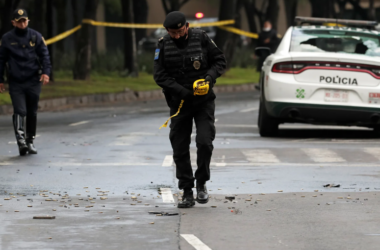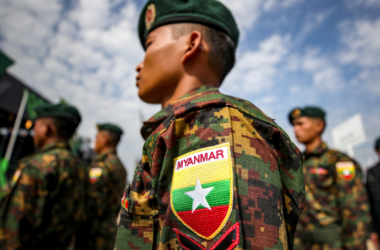A powerful security official was named president of Vietnam on Wednesday, marking the third person to hold the position in less than 18 months amid a fierce power struggle ahead of a generational leadership change.
In an extraordinary session of Parliament, lawmakers confirmed the appointment of Gen. To Lam, 66, the minister of public security, who had been nominated for president by the Vietnamese Communist Party over the weekend.
On Monday, lawmakers also approved the nomination of Tran Thanh Man, 61, as the chairman of the National Assembly. These roles are part of a four-member collective that governs Vietnam, including the party chief and the prime minister.
As a result, both General Lam and Mr. Man are potential candidates to succeed Nguyen Phu Trong, who has been the party chief for the past 13 years. Mr. Trong, 80, is currently serving an unprecedented third five-year term after his re-election in 2021. The ensuing succession vacuum has led to intense power struggles in Vietnam, a country once known for its stable and predictable political landscape, ahead of the next leadership transition in 2026.
Analysts suggest that General Lam has an advantage over Mr. Man in the leadership race due to his implementation of an anti-corruption campaign, championed by Mr. Trong, which has widened significantly in recent years. This “blazing furnace” campaign has led to the removal of many officials, including the predecessors of both General Lam and Mr. Man. Additionally, General Lam has overseen a broad crackdown on civil society and has been implicated in the high-profile kidnapping of a former Vietnamese provincial official from Berlin in 2017.
On Tuesday, lawmakers voted to relieve General Lam from his position as public security minister. It remains uncertain whether he can ascend to the role of party chief.
“His background as minister of public security offers him a lot of power but may also be a setback for him because he’s feared by many people,” said Le Hong Hiep, a senior fellow on Vietnam at the ISEAS-Yusof Ishak Institute in Singapore. “If he becomes the party chief, people have already raised concerns that he may utilize the security apparatus to turn Vietnam into a police state.”
General Lam’s predecessor, Vo Van Thuong, resigned in March, only a year after taking office, due to unspecified violations of party regulations. His predecessor, Nguyen Xuan Phuc, also resigned abruptly in January 2023 under similar circumstances.
In addition to the two former presidents, the speaker of Parliament and two deputy prime ministers have resigned in recent years over accusations of wrongdoing. Since 2022, six members of the Politburo, the country’s top decision-making body, have been removed. On Thursday, the party appointed four new members to the Politburo.
General Lam faced significant criticism in Vietnam in 2021 after a video went viral showing him eating steak covered in 24-karat gold flakes at a London restaurant. At the time, Vietnam was under a strict pandemic lockdown, and the meal’s cost, up to $1,150, was about six times the average Vietnamese worker’s monthly income. Last year, a Vietnamese activist who parodied the meal in a video was sentenced to over five years in prison for “conducting propaganda against the state.”
At his swearing-in ceremony on Wednesday, General Lam described his new position as a significant honor and responsibility. He pledged to follow “policies and guidelines set out by the party.”
Corruption remains a significant issue in Vietnam, which ranks 83rd out of 180 countries on Transparency International’s corruption index, below China and Cuba. Mr. Trong initiated the anti-corruption drive in 2016, aiming to eliminate “bad roots” and purify the party to maintain its legitimacy.
However, analysts have questioned whether some of the anti-corruption campaign’s targets were politically motivated, especially within the opaque political system. Foreign investors have also voiced concerns that the campaign has slowed decision-making, as officials are hesitant to approve projects or issue business licenses for fear of corruption investigations.
Despite these challenges, foreign investors have continued to invest in Vietnam, which has become a significant global manufacturing hub as multinational companies seek alternatives to China. Between January and April of this year, foreign direct investment in Vietnam increased by 7.4 percent from last year, reaching $6.3 billion. According to Bloomberg data, the country’s benchmark stock index has risen about 13 percent this year, making it the best performer in Southeast Asia.








